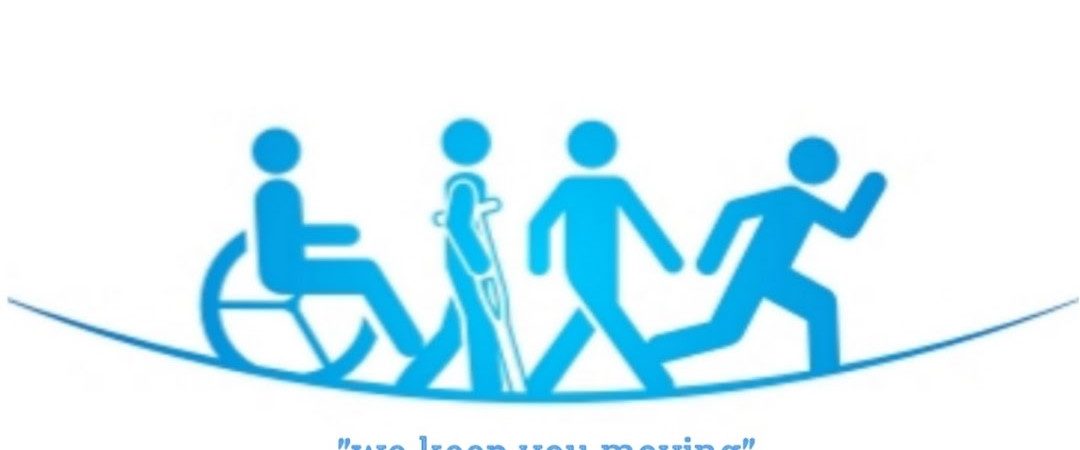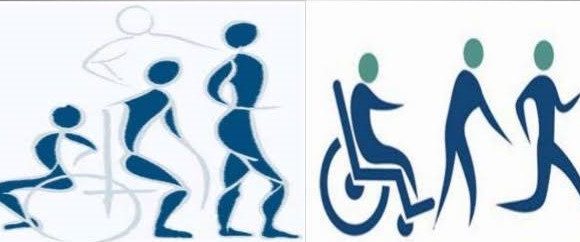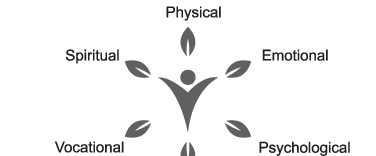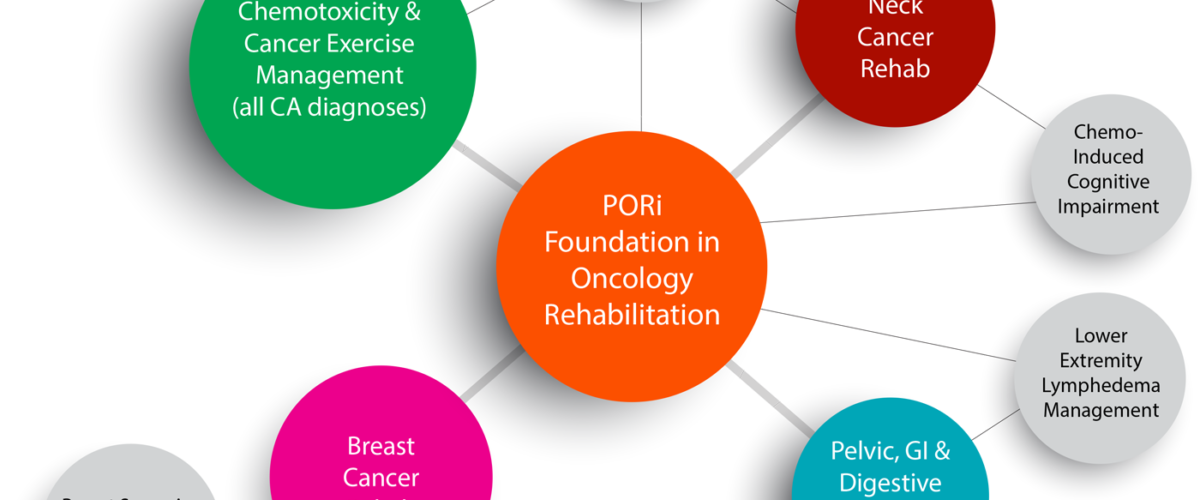Factors influencing the implementation of Evidence-Based Practice among Indonesian Physiotherapists in Jakarta and the surrounding area, Indonesia (Research Paper)- Imam Waluyo
Article Category: Research Paper
Factors influencing the implementation of Evidence-Based Practice among Indonesian Physiotherapists in Jakarta and the surrounding area, Indonesia
Authors
1. Septian Arief Gandaputra
Physiotherapy Program, Padma Kumara –SGT Indonesia , Indonesia
Email: asnov.fisioterapi@gmail.com
2. Imam Waluyo
Senior Researcher of Wellness , Traditional Complemenatry Medicine
Padma Kumara –SGT Indonesia
Email: scientist.com_antoniwa@mail.com
3. Ho-Jui Tung
Faculty of Health Sciences, Asia University, Taiwan
Email: htung@asia.edu.tw
4. Ferry Efendi
Faculty of Nursing, Universitas Airlangga, Indonesia
Email: ferry-e@fkp.unair.ac.id
5. Hery Prambudi, An Nasher Institue of Health Sciences Cirebon Indonesia
Email : heryprambudi21@gmail.com
Abstract
Objective: The study aimed to explore the profile of evidence-practice implementation and its associated factors among Indonesian Physiotherapists in Jakarta and the surrounding area, Indonesia.
Methods: This study was a cross-sectional design. Proportional sampling technique used to determine the sample as a representative of the population. Twenty-one public and private hospitals and around 104 full-time registered Physiotherapists participated in this study. The study adopted the instruments which have been established to investigate the attitude of Physiotherapists towards Evidence-Based Practice which developed by Jette (2013). Univariate analysis and logistic regression were employed to see if there are significant relationships between the predictors and outcome.
Results: More than half of participants were less than 40 years old (61.5%). Participants have been recognized as having worked in the field of physiotherapy with duration of fewer than ten years (43.3%). For educational background, the participants who certified as Bachelor of Applied Science (B.Sc.) was 21.2%. The results revealed the association between predictors and EBP implementation. Physiotherapists who were admitted that they were doing self-learning in seeking information and other additional more likely to have a positive attitude towards EBP (OR=1.472). Similarly, working as physiotherapy for more years positively associated with EBP implementation (OR = 1.009)
Conclusion: In general, self-intention to develop their skill and their knowledge on EBP and also the duration of working as physiotherapists were contributed to influence the attitude of physiotherapists toward Evidence-Based Practice. In future studies, the understanding level of EBP terms should be distinguished. Hence, it could differentiate the physiotherapists from the low-level to the high-level according to their understanding of EBP.
Keywords: evidence-based, implementation, associated factors, Physiotherapy, Indonesia.
Background
Evidence-based practice (EBP) is needed to improve the quality of patient care in daily practice especially in physiotherapy healthcare services [1]. Physiotherapist as professional health practitioners is obliged to provide excellent health services, which are based on the best research evidence in clinical decision making [2]. Further, clinical decision making in the physiotherapy field is central to the autonomy of professional practice. Therefore, this process and skills in critical thinking and problem-solving use to determine decisions and actions that are appropriate in handling patients effectively [3],[4],[5]. EBP itself combines attention, interest, cognition and psychomotor aspects to make decisions about diagnosis, intervention, and to provide an explanation to the patient about the description of the disease [6],[7].
Several studies have been conducted regarding professional ability that has mainly focused on physiotherapy professionalism aspects such as self-development, organizational support and other individual factors related to the practice of evidence in order to enhance patient satisfaction and to undertake ethical decision-making in health services [8],[9],[10],[11],[12]. Among the regions in South Asia, the previous research has been conducted in the Philippines and Malaysia [13],[14]. In Indonesia, lack of sufficient studies that reporting the positive attitude towards EBP and the influencing factors could be more interesting to discuss. Therefore, a more in-depth study of matters related to the implementation of EBP among Indonesian physiotherapist is needed. The primary purpose of this study consists of two main parts. First, describing the physiotherapist’s profile related to EBP implementation such as individual characteristics, self-development, and organizational support. Second, to investigate the factors that influence Physiotherapist’s decision on implementing evidence-based as a health professional in day-to-day work.
Methods
This study was a cross-sectional study conducted in both public and private health services located in the Jakarta and the surrounding area, Indonesia. The determination of the minimum sample has been framed from a guideline from RISFASKES (national research on health facilities) by the Jakarta region. The proportional sampling technique was employed to calculate the number of participants. Around 21 physiotherapy units had been authorized to be set as the subject in this study. There were either public (6 units) or private (15 units) involved, and all selected physiotherapists were recruited as subjects of this study. To measure the physiotherapist’s attitude towards EBP, we referred to the validated instrument established by Chimdi [4]. The instrument was adopted and modified to fulfill the study requirement. The instrument consisted of some sub-topics which are described as the following variables such as socio-demographic, organizational support, and Physiotherapy’s self-learning towards the source of information they need in order to develop a sound clinical decision making, and the role of the organizational support to set them free to enhance their both soft and hard skill in Physiotherapy. Univariate analysis and logistic regression were employed to determine the correlation where associations were found.
Results
The univariate analysis presents the distribution of participant characteristics as shown in table 1. The participants in this study were generally less than 40 years old (61.5%). Participants have been recognized as having worked in the field of physiotherapy with duration of fewer than ten years (43.3%). For educational background, most of the participants were certified as diplomas (78.8%), while those who had undergraduate science certificates (21.2%). The results of this study have classified participants into two types based on institutional status. Those who work in private institutions (55.8%) are slightly larger than government institutions (29.8%). Around 60.6% of participants felt that they had been supported by the conditions they worked to improve their skills and knowledge related to clinical decision making to the needs of patients. Physiotherapists who have started themselves to find related information to support their clinical skills in clinical practice is calculated at around 22.1%.
Table 1. Characteristics of participants
| Variables | Percent Distribution
N = 104 |
|
| (%) | ( n ) | |
| Physiotherapists age | ||
| Less than 40 years old | 61.5 | 64 |
| Above 41 years old | 38.45 | 40 |
| Working duration as
physiotherapist |
||
| Less than 10 years | 43.3 | 45 |
| More than 11 years | 56.7 | 59 |
| The Last degree in physiotherapy | ||
| Diploma | 78.8 | 82 |
| Bachelor of science | 21.2 | 22 |
| Type of institution
the physiotherapist work |
||
| Public | 29.8 | 31 |
| Private | 55.8 | 58 |
| Perceived organizational support | ||
| Fully supported | 60.6 | 63 |
| Lack of support | 39.4 | 41 |
| Self-learning / self-development
in clinical information sources |
||
| Frequently | 77.9 | 81 |
| Seldom | 22.1 | 23 |
Table 2 Analysis of logistic regression between associated factors EBP implementation
| Variables | B | OR | P value | 95% CI | ||
| lower | upper | |||||
| Age | ||||||
| Less than 40 yearsa | 1.18 | 3.26 | 0.07 | 0.90 | 11.83 | |
| The current physiotherapy
education |
||||||
| Bachelor of applied science a | 0.80 | 2.23 | 0.18 | 0.70 | 7.15 | |
| Working duration | ||||||
| More than 10 years | 1.39 | 3.81 | 0.04* | 1.10 | 13.21 | |
| Self-learning / self-development
in utilizing information sources |
||||||
| Frequentlya | 1.49 | 4.46 | 0.01* | 1.47 | 13.52 | |
| Perceived organizational support | ||||||
| Fully supporteda | 0.14 | 1.16 | 0.78 | 0.41 | 3.27 | |
| a = reference category
*Significant value P < 0.005 |
||||||
Discussion
This study investigated the profile and the factors associated with EBP implementation among the Physiotherapist in Jakarta and its surrounding area. According to the results, this study failed to find a significant relationship between young age and evidence-based practice behavior in day-to-day work. This thing is contrary to the previous research which found that young age determines individuals to develop themselves in terms of learning towards EBP. Young age predicts the intention to learn from a sense of self-fulfillment in broadening their self-capacities [14]. Physiotherapy with Bachelor of applied science (B.Sc.) degree has been set to predict Physiotherapist’s decision to EBP in a positive direction. However, the results of the logistical analysis of this study did not find an association between the study level of the B.Sc. degree and the tendency to make evidence-based decisions. Contrarily, several studies a study found that the higher educational level demands the development of concepts and knowledge [15, 16]. It has an essential role in providing provision to physiotherapists to think logically and systematically based on recent evidence. Hence, it could bring the basis of thinking to fulfill the patient’s needs through the effective and efficiency of treatments.
In the context of the working duration as a physiotherapist, there was a significant relationship shown against the behavior of applying evidence base. The experience of working as a physiotherapist determines the behavior of Physiotherapy which this study shows the Physiotherapist tend to behave well in evidence-based implementation. This phenomenon also indicated by a study conducted by Gerrish which stated that working senior physiotherapist will make a major contribution to clinical decision making based on scientific and current sources.
The self-development factor towards scientific knowledge and scientific data based has a significant role in EBP. In this study, physiotherapists who have the intention to continue to update science and the latest data have a substantial role in changing normal behavior towards evidence-based. The previous studies confirmed that the intention and motivation in self-development played a significant role in increasing the ability to find sources of evidence to support the creation of effective and safe services for patients [2], [17], [18].
The study has indicated some limitations during the survey. First, the term Evidence-Based Practice may not commonly and adequately be understood by Physiotherapists in this study, either about the terminology itself or the definition. This matter could be caused by the ambiguity in terms of explanation during the survey. To some extent, these factors can affect the research subject when they are filling out the questionnaire although the study has been arranged the concept from recent journals. However, the concept of this study still considered as incomplete and debatable factors. In the next future, there are other multifactor should be involved concerning the Physiotherapist’s decision in the implementation of EBP such as the circumstances of the system, culture, history, regulation, and policy related to self-development and decision-making authority [13].
Conclusion
In general, this study found that self-learning and working duration were considered to be predictors toward attitude in EBP. Future studies are needed to assess the interconnections and relationships between and around the proficiency of seeking relevant scientific evidence on their professional performances. Other specific topics would be related to the environmental support, and other determinants such as the physiotherapist’s workplace needs, the management system in place, current policies and the regulations regarding the physiotherapist’s professional and self-development focused on clinical reasoning. Evidence-based practice is still quite complex to understand and need more specific training or certification on EBP.
Conflicts of interest
Nnone of the authors of this study has a conflict of interest in any way.
Funding/support
There is no funding added to this study.
Authors’ contributions
- Septian Arief Gandaputra proposed the original idea, conducted the statistical analyse, and drafted the manuscript
- Mr. Imam Waluyo gave us valuable feedbacks and critiques in preparing and revising the manuscrip especially in the content and conceptual framework.
- Dr. Ho-Jui Tung refined redirected the data analyses, and assisted to draft the manuscript.
- Ferry Efendi supervised all the contextual concept and also give his hand on proof-reading proces, particulary for academic writing
Ethical Clearance
The ethical clearance was obtained for the research project. The journal has the right to ask for a copy of ethical clearance.
Acknowledgement
We would like to thank to the contributors to this research such as co-authors who give valuable work for this research, team project of the study and also the participants who took part in the study.
References
[1]. Jette, D.U., et al., Evidence-based practice: beliefs, attitudes, knowledge, and behaviors of physical therapists. Physical therapy, 2003. 83(9): p. 786-805.
[2]. Bridges, P.H., L.L. Bierema, and T. Valentine, The propensity to adopt evidence-based practice among physical therapists. BMC health services research, 2007. 7(1): p. 103.
[3]. Herbert, R., et al., Practical Evidence-Based Physiotherapy-E-Book. 2011: Elsevier Health Sciences.
[4]. Cimdi, C., Evidence-based practice (EBP) in rehabilitative physiotherapy. Internet Journal of Allied Health Sciences and Practice, 2012. 10(4): p. 10.
[5]. Sackett, D.L., et al., Evidence based medicine: what it is and what it isn’t. 1996, British Medical Journal Publishing Group.
[6]. Akobeng, A., Evidence in practice. Archives of disease in childhood, 2005. 90(8): p. 849-852.
[7]. Wainwright, S.F., et al., Factors that influence the clinical decision making of novice and experienced physical therapists. Physical Therapy, 2011. 91(1): p. 87-101.
[8]. Chidozie, E., O. Adetutu, and A. Udoka, Effects of a Customized Professionalism Educational Intervention on Physical Therapists’ Knowledge and Attributes of Professionalism. Internet Journal of Allied Health Sciences and Practice, 2018. 16(2): p. 9.
[9]. Bello, A.I. and I.G. Lawson, Attitudes and barriers towards engaging in continuing professional development among clinical physiotherapists in Ghana. Internet Journal of Allied Health Sciences and Practice, 2013. 11(1): p. 7.
[10]. Bury, T.J. and E.K. Stokes, A global view of direct access and patient self-referral to physical therapy: implications for the profession. Physical therapy, 2013. 93(4): p. 449-459.
[11]. da Silva, T.M., et al., What do physical therapists think about evidence-based practice? A systematic review. Manual therapy, 2015. 20(3): p. 388-401.
[12]. Condon, C., et al., Ability of physiotherapists to undertake evidence-based practice steps: a scoping review. Physiotherapy, 2016. 102(1): p. 10-19.
[13]. Dizon, J.M.R., K. Grimmer-Somers, and S. Kumar, The physical therapy profile questionnaire (PTPQ): development, validation and pilot testing. BMC research notes, 2011. 4(1): p. 362.
[14]. Yahui, H.C. and N. Swaminathan, Knowledge, attitudes, and barriers towards evidence-based practice among physiotherapists in Malaysia. Hong Kong Physiotherapy Journal, 2017. 37: p. 10-18.
[15]. Stevenson, K., M. Lewis, and E. Hay, Do physiotherapists’ attitudes towards evidence‐based practice change as a result of an evidence‐based educational programme? Journal of Evaluation in Clinical practice, 2004. 10(2): p. 207-217.
[16]. Brown, C.E., et al., Nursing practice, knowledge, attitudes and perceived barriers to evidence‐based practice at an academic medical center. Journal of advanced nursing, 2009. 65(2): p. 371-381.
[17]. Paterson, C. and J. Chapman, Enhancing skills of critical reflection to evidence learning in professional practice. Physical Therapy in Sport, 2013. 14(3): p. 133-138.
[18]. French, H. and J. Dowds, An overview of continuing professional development in physiotherapy. Physiotherapy, 2008. 94(3): p. 190-197.











